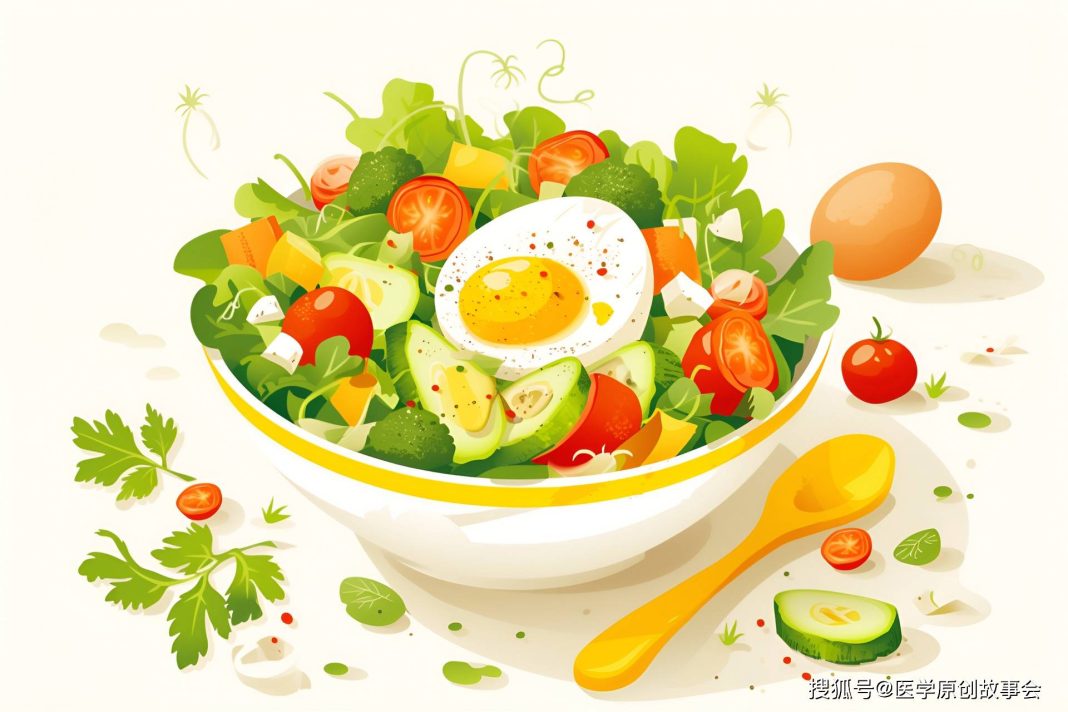What should one do if diagnosed with high blood pressure? Beyond medication, there is another very important matter: maintaining good dietary habits. Not long ago, I encountered a patient who consulted me, saying, “Doctor, I’ve been diagnosed with high blood pressure. Does that mean I can’t eat eggs anymore?”
I was surprised by his line of thought. The patient informed me that he had recently read a wellness article stating that eggs contain high levels of cholesterol, and that those with high blood pressure should avoid greasy foods, which led him to believe he couldn’t eat eggs. Since this patient had a habit of eating a boiled egg every morning, such an article understandably scared him, prompting a quick visit to the hospital.
Can’t high blood pressure patients eat eggs? I don’t know what motivated the author of that article, but it was indeed too exaggerated and taken out of context. Every 100 grams of egg contains 200-250 milligrams of cholesterol, and most of the cholesterol in eggs is found in the yolk. In fact, eating one egg a day does not raise cholesterol levels. The “Dietary Guidelines for Chinese Residents (2022)” released by the Chinese Nutrition Society recommends that individuals can consume 40-50 grams of eggs daily, so eating 1 to 2 eggs a day is perfectly fine.
For patients like this individual who consume one boiled egg daily, they are not eating a significant amount of eggs. There is no need to worry about excessive cholesterol intake. Eggs are rich in high-quality protein, vitamins, and trace elements, all of which are beneficial for patients with high blood pressure.
For patients with high blood pressure, there are three types of food that should actually be eaten in moderation.
First, patients with high blood pressure should limit their intake of high-sodium foods.
Any high-sodium food, whether during meals or as snacks, should be minimized by patients with high blood pressure.
The reason is simple: salt is a major culprit in raising blood pressure. The more salt consumed, the greater the increase in blood pressure, primarily because the main component of salt is sodium chloride, which increases blood volume, thereby raising blood pressure.
The World Health Organization recommends that adults should ideally consume no more than 5 grams of salt per day.
Using a lot of salt while cooking, enjoying high-sodium cured or smoked foods, and overusing seasonings like monosodium glutamate, soy sauce, and oyster sauce, will all raise blood pressure.
For high blood pressure patients, choosing low-sodium salt is advisable. Researchers from the Wu Yangfeng team at Peking University First Hospital published a follow-up analysis in JACC on dietary, exercise, and cardiovascular health – the salt reduction strategy for elderly individuals (DECIDE-Salt) and found that even elderly individuals with normal blood pressure could benefit from low-sodium salt. Using high-potassium, low-sodium salt for two years can reduce the risk of developing high blood pressure by 40% without increasing the incidence of low blood pressure.
Second, patients with high blood pressure should limit their consumption of high-sugar foods.
The authoritative international journal “Hypertension” published a study on the connection between sugar intake and blood pressure. After surveying over two thousand participants, the study found that those who consumed an additional 335 milliliters of sugary beverages daily experienced an increase in systolic blood pressure of 1.6 mmHg and diastolic blood pressure of 0.8 mmHg!
The mechanism by which sugar increases blood pressure is multifaceted. Like salt, sugar has a strong osmotic effect; excessive sugar intake can cause water and sodium retention. The excess water and sodium remaining in the bloodstream can increase blood volume, thereby raising blood pressure. Moreover, excess sugar can be converted into fat, which can contribute to weight gain. Obese individuals face a higher risk of developing high blood pressure.
Additionally, a long-term high-sugar diet can easily lead to diabetes, and diabetic nephropathy is one of the most common complications of diabetes. Kidney dysfunction can also make blood pressure difficult to control, leading to renal hypertension.
Third, patients with high blood pressure should limit their intake of animal organs and brains.
Animal organs and brains are truly the kings of cholesterol, with pig brains containing 2571 mg of cholesterol per 100 grams; followed by animal organs: chicken liver contains 356 mg per 100 grams; pig kidneys contain 354 mg per 100 grams; sheep liver contains 349 mg per 100 grams; and duck liver contains 341 mg per 100 grams.
If cholesterol intake is excessive, it can easily affect the health of blood vessels and increase the likelihood of atherosclerosis, which over time can be very detrimental to blood pressure control.


